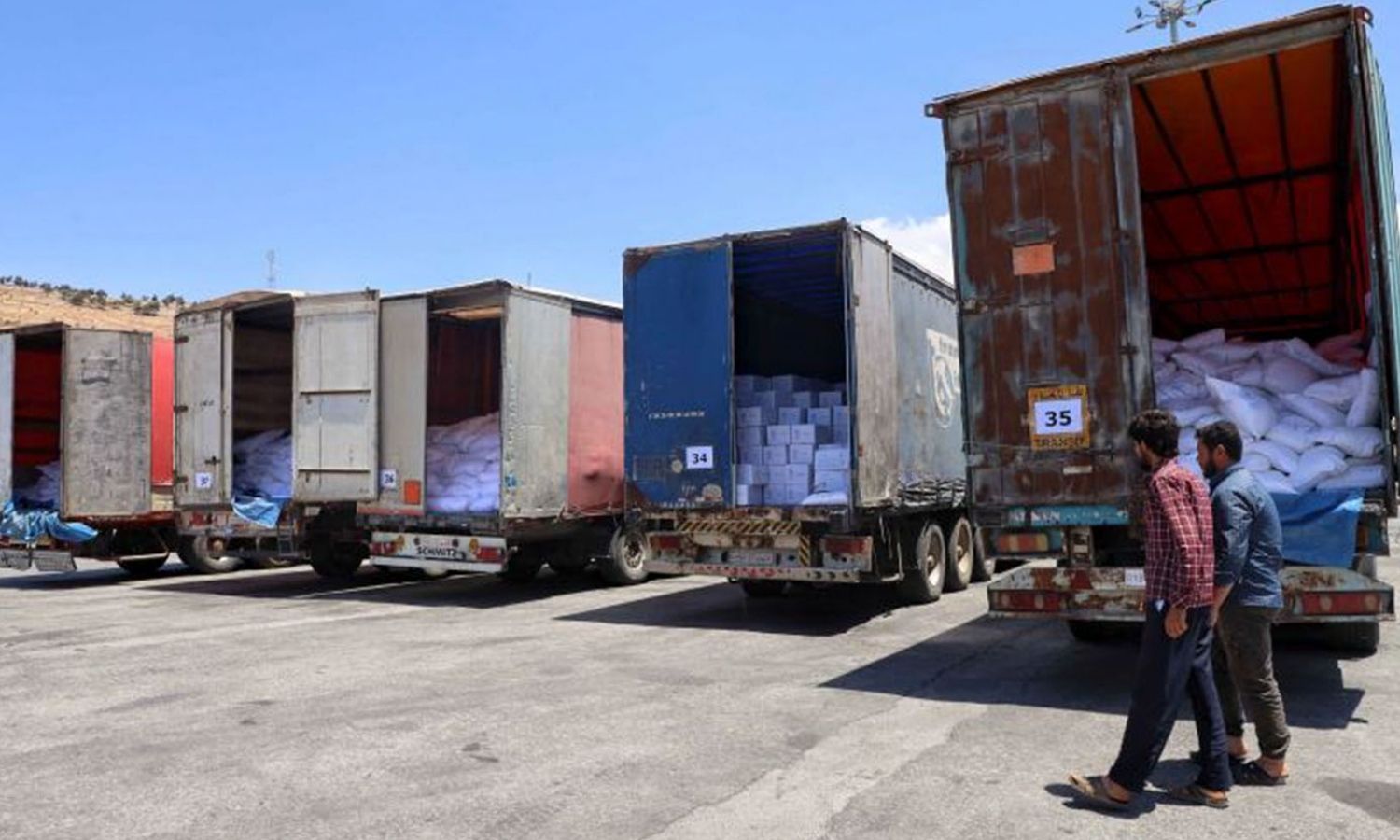Over the past years, Russia has continued to take control of the decision to extend cross-border aid by using its veto and pushing for sufficiency with cross-line aid, prompting Syrian organizations to seek solutions to save some four million people dependent on humanitarian aid in northwestern Syria.
The efforts of the American Relief Coalition for Syria (ARCS) and a group of Syrian organizations were geared towards examining the role of the Security Council in extending the cross-border aid resolution in view of the region’s growing humanitarian needs and the continued politicization of aid by the Syrian regime and its Russian ally.
Last November, Guernica 37, commissioned by ARCS and its partners, issued a study on the legality of extending cross-border aid without voting on the resolution within the Security Council.
The study, a copy of which was shared with Enab Baladi, concluded that the extension of cross-border aid in Syria was legal without the need for a Security Council mandate, based on a set of key points.
The mandate of the Security Council resolution to deliver foodstuffs, medicines, and other essential assistance through the Bab al-Hawa border crossing from Turkey to northwestern Syria for a period of six months is scheduled to expire on 10 January, amid Russian pressure to freeze the resolution in exchange for reliance on cross-line aid. Thus, the central authority in Damascus would control the file of international aid and its distribution.
2014 is not 2022
The study was titled “2014 is not 2022”, one of the most important points on which it relied to illustrate the differences between the need for a Security Council authorization in the aid file back in 2014 and the changes that took place in the region so that aid would continue to flow legally this year without a vote on the matter.
The Vice Chairman of ARCS’ Board of Directors and one of the supervisors of the study, Yaser Tabbara, told Enab Baladi that the “random and vague” conditions in northern Syria and the multiplicity of parties to the conflict, which made the map of control unclear, prompted the Security Council to intervene in 2014 to bring aid into the region.
Humanitarian convoys were repeatedly bombed prior to the intervention of the United Nations Security Council (UNSC), making its intervention through Resolution 2165 a deterrent to the parties to the conflict, according to Tabbara. The UNSC’s formula of intervention gave the cross-border aid decision a hefty political weight that stopped the attacks on the aid convoys, he said.
In contrast, the control map is becoming clearer at the moment, making UN agencies able to handle the party in control of the Bab al-Hawa border crossing to pass aid, according to Tabbara.
Tabbara, who holds a doctorate in law from the American University of DePaul in Chicago, argues that the United Nations agencies’ dealings with the Syrian Salvation Government (SSG) in control of the crossing is a logistical humanitarian approach, as it is a “de facto” authority that controls the region.
“Indirect” aid
Syrians face the same fears ahead of the vote to renew Security Council Resolution 2165, while the Syrian regime and its Russian ally are pressuring to halt cross-border aid, painting it as a “violation of Syria’s sovereignty.”
According to the Guernica 37 study commissioned by ARCS, the aid transfer mechanism through the Bab al-Hawa crossing is not considered transboundary, as the role of the representatives of the UN agencies ends at the Turkish border, while the aid is delivered to local non-governmental partner organizations in Syria.
Pr. Yaser Tabbara said that the problem for the Syrian regime and its Russian ally is that international organizations cross the Syrian borders while other relief organizations are not bound by the obligation of United Nations agencies. This prompted the study to dismantle the aid mechanism to reduce the border-crossing status.
He explained that some adjustments to the current aid mechanism could de-label it as cross-border aid by assigning some logistical parts of the mechanism for the transport and delivery of aid to beneficiaries in the north of Syria to parties outside United Nations agencies.
This article was edited by The Syrian Observer. The Syrian Observer has not verified the content of this story. Responsibility for the information and views set out in this article lies entirely with the author.


